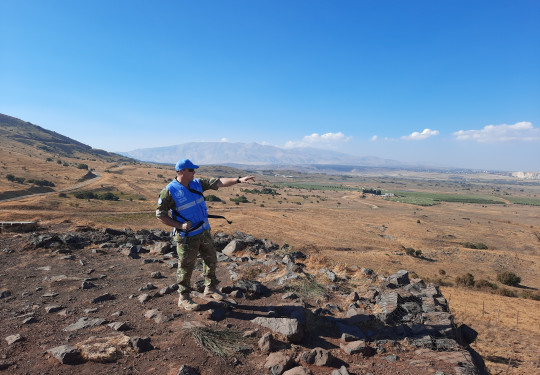Challenging environment, maximum reward
Business owner and Army Reservist Duncan McEwan has always wanted to deploy to the Middle East. He got a double role recently in Lebanon and Syria.
07 December, 2022
The complexity of the operating environment and growing as a commander were key highlights for Reserve Officer Captain Duncan McEwan on his recent deployment on Operation Scoria.
The New Zealand Defence Force has been contributing to the United Nations’ oldest peacekeeping mission, United Nations Truce Supervision Organisation (UNTSO) since 1954, providing up to eight military observers in monitoring roles based in the Golan Heights, Lebanon and Syria.
Captain McEwan said he has always wanted to deploy to the Middle East so when the opportunity came he took a short term regular force engagement.
“The mission seemed very interesting, particularly Syria where the Civil War has been going on since 2011 and has had a significant effect on UN operations in that country.”
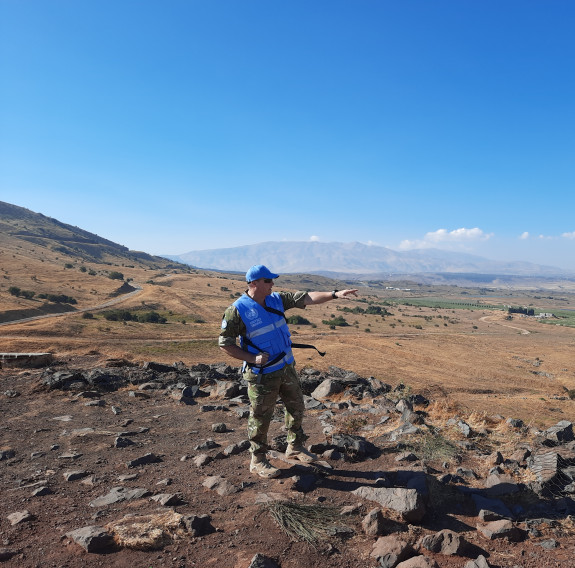
Reserve Officer Captain Duncan McEwan at Golan Heights, Israel.
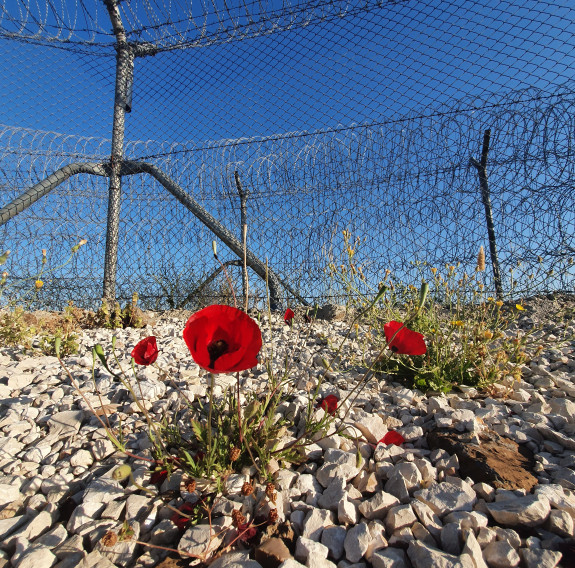
Desert Poppies on site.
Deployed for 12 months, Captain McEwan spent the majority of his time as a UN Military Observer in the Northern part of the UNTSO operational area, but had a challenging role in the latter part of his deployment as a Team Leader for a newly stood up team in the Southern part.
The Southern part had the highest threat risk and was a very complex operating environment due to the ongoing effects of the civil war in the area.
“My role was to stand up the team, provide input into operational development, and work with UN Disengagement Observer Force on integrating local security force elements.
“It was very challenging, but also very rewarding,” he said.
A Reserve Officer since 2017 and business owner in his day-to-day life, Captain McEwan said being able to utilise his skills from his day-to-day job definitely helped.
“Having a strong knowledge of legal documents and legal systems helped a lot. It is a complicated environment with many different layers of agreements governing how the mission operates.
“As well as that, the UN has a large number of local and international civilian staff and has operating structures that are both military and non-military. So knowing both sides of military and civilian organisational structures definitely helped in the roles I did,” he said.
The effects of Covid-19 were challenging on this deployment Captain McEwan said.
“The mission itself was affected by ongoing Covid-19 related operating protocols, including whenever exposed or travelling between borders.
“Government and UN mission rules in the countries we were operating in changed regularly which increased complexity in planning operations.”
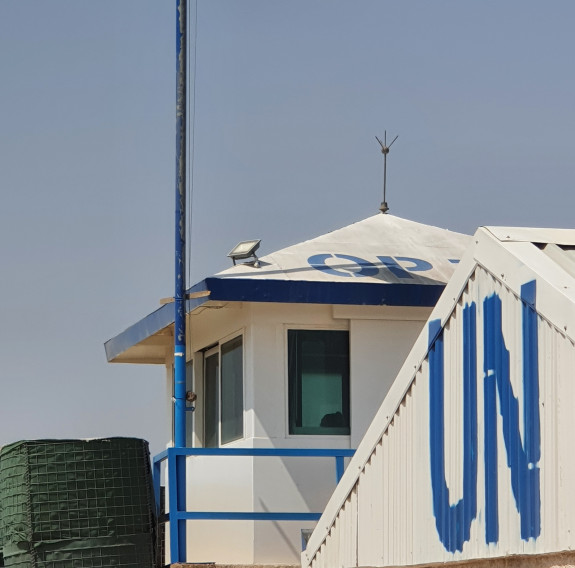
The tower Captain McEwan worked from on operation.
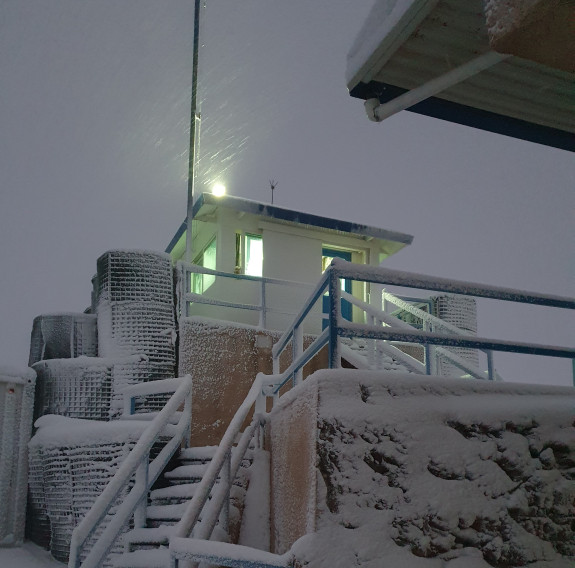
Weather on operation could reach extremes.
However he said that working somewhere completely different to his normal world was something he enjoyed.
Working with other countries militaries, being challenged, growing as a military commander, and travelling in the Middle East during short leave breaks were all highlights for me.
The year-long mission involved working with around 40 officers from 19 other countries, and while the length of the mission is a long time Captain McEwan said it was worth it.
“It is a complex mission and it takes at least four months to develop a high level of knowledge of the operational requirements of the role and the area of operation. It doesn’t make sense to leave just after you get to a point where you can add value to the mission.
“New Zealanders contribute well on this mission, not only to the UN operations, but also the ongoing enhancement of our military and national reputation internationally.
“I enjoyed immensely being in a very complex environment in Syria, and would absolutely do it again.”
